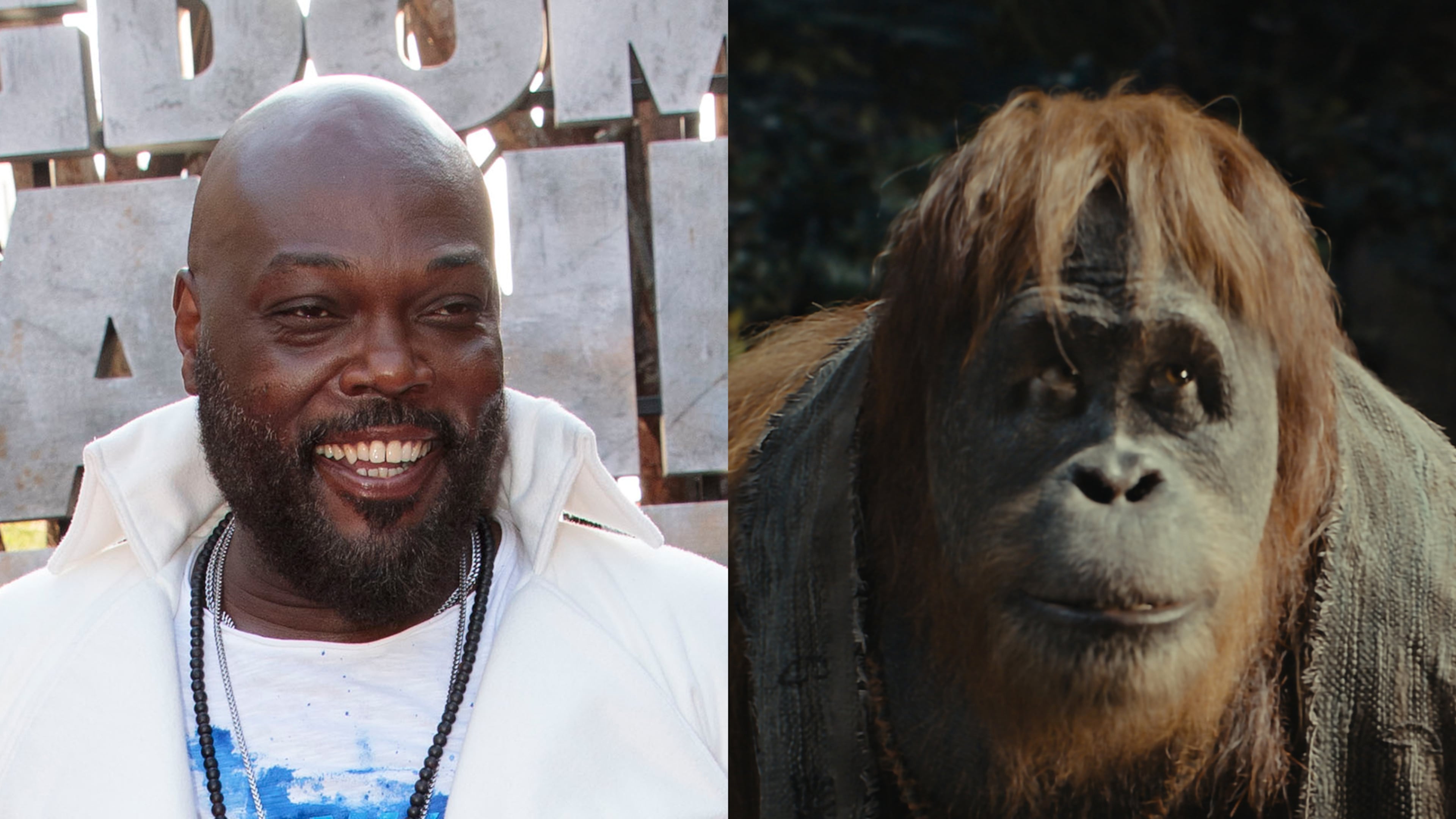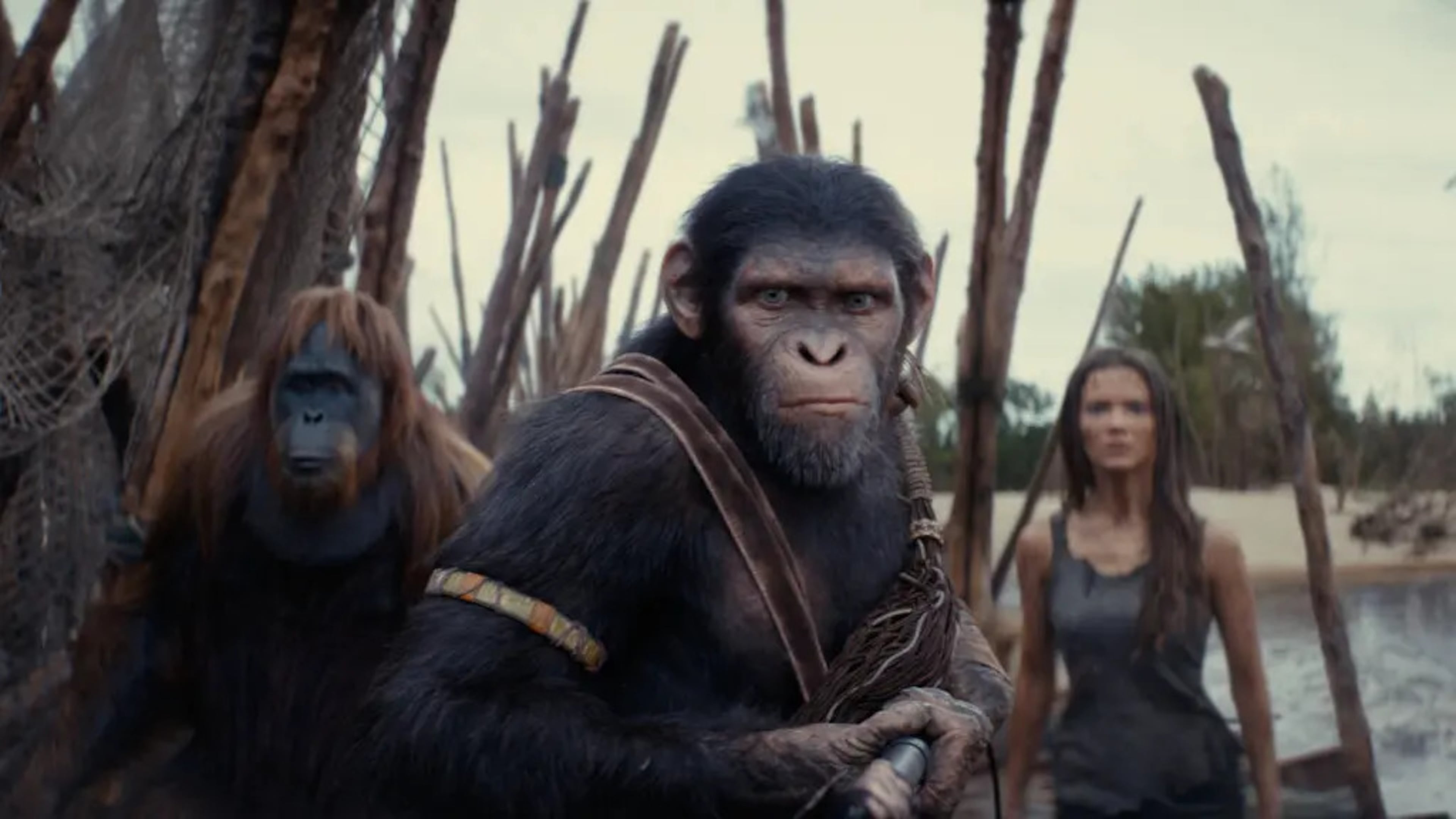Atlantan Peter Macon stars in ‘Kingdom of the Planet of the Apes’

“Kingdom of the Planet of the Apes” takes the saga 300 years into the future from the last film in 2017, focused around a tribe of apes who nurture eagles and possess no real knowledge about what happened in the 21st century.
At this point, humans are rendered mute, feral and dumb due to a man-made virus while apes now speak and behave much like humans.
The film’s protagonist ape Noa (Owen Teague) survives an ambush by a clan of violent apes under Proximus Caesar (Kevin Durand), an aggrandizing empire builder who has twisted the words of Caesar of yore, the Caesar featured in the trilogy of “Planet of the Apes” films from 2011 to 2017.
Caesar had espoused peace and non-aggression among apes. But over the generations, that didn’t stick. Caesar’s line “Apes together strong” takes on a different meaning under Proximus, who takes Noa’s clan hostage.
As Noa seeks to find his family, he runs into both a human named Mae who can talk (Freya Allan) and an orangutan Raka (Peter Macon) who possesses accurate knowledge of Caesar’s long-ago pacifist ways.
Raka becomes an avuncular Obi Wan-Kenobi to Noa’s naive Luke Skywalker.
“My character’s role offers the only specific kind of input in the film about Caesar’s actual past,” said Macon in an interview at the Four Seasons last month to promote the film, which came out May 10. “The legacy of Caesar is now in the form of oral stories. Fables tend to outlive reality.”
Macon, a Marietta-based actor best known for his role as Lt. Commander Bortus in the Fox/Hulu sci-fi series “The Orville,” which ran from 2017 to 2022, possesses a deep, resonant voice that evokes Alec Guinness.
“My voice made no sense when I was 15,” he said. “It’s also why I don’t go to nightclubs. You can’t ever hear me!”
Macon also compares Raka to Dr. Emmett Brown in “Back to the Future.” “He’s a bit of an archaeologist, a bit of a nutty professor,” he said. “I’m digging around trying to find the truth of the past 300 years and holding on to this idea that humans and apes can live side by side.”
The film was shot largely outdoors in Australia, which was lovely, “right down to the leeches, the monitor lizards, the snakes and spiders. Anything that wants your blood!”
The postproduction team also created a world featuring remnants of humanity like old skyscrapers, overgrown by foliage and turned into homes for apes and other animals. “For the apes, they are living in the Bronze Age,” Macon said. They ride horses and wear shoulder pads and helmets, for instance, but have no guns.
Macon didn’t quite know how his character would look like while shooting the film but when he saw the final product, “I was blown away. I felt like I was seeing magic.”

He also worked hard to get inside the head of an orangutan and “lose all sense of being a human being as much as I could and be uncomfortable. There’s a scene where I’m throwing fruit at Mae and the fruit is hitting the ground. I’m picking them up and eating them. There’s dirt on the fruit. I can’t be a persnickety human so I just eat it. For an orangutan, the dirt helps clean my teeth. It’s amazing when you just give yourself over to that process and just let go.”
In the end, Macon is thrilled to join a franchise that dates back to 1968. “I love watching these movies,” he said. “The difference is now I am part of it, contributing to it in a unique and specific way from my own vantage point.”
STILL SHOWING
“Kingdom of the Planet of the Apes,” in metro Atlanta theaters


